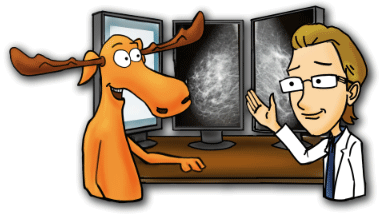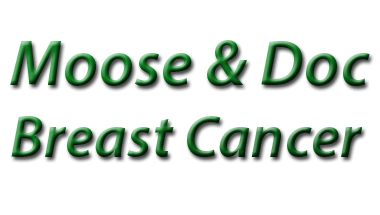Adjuvant Therapy for Breast Cancer Treatment
Adjuvant therapy is a term that doctors use to encompass all of the extra treatments to help prevent the breast cancer from returning.
By contrast, ‘neo adjuvant’ breast cancer therapy is given prior to any other treatments in order to improve the benefit of subsequent treatments). These are basically systemic breast cancer therapies.
- chemotherapy
- radiation therapy
- hormone therapy
- immunotherapy
- targeted therapy
So, the type and degree of adjuvant therapy doctors recommend in breast cancer is in large part determined by the specific type of breast cancer and the cancer stage.
I just would like to inform you that I have a newer version of this page with more up-to-date information on Adjuvant Breast Cancer Therapy. However, this page still has really great research material, so I would still use it as well as the new one.
Primary Breast Cancer Therapies
The primary treatments for breast cancer are radiation therapy and breast cancer surgery. In addition, adjuvant therapy is used to limit the chances of the breast cancer returning.
Breast cancer surgery can usually remove all of the malignant cancer cells. So adjuvant therapy is a way to kill off cancer cells which may have been left behind or migrated undetected to other areas of the body.
There are many benefits to adjuvant therapies, but they are not without side effects. Thus, the patient and the breast cancer team must weigh the decision carefully.
Chemotherapy is ‘toxic’ to breast cancer cells
Chemotherapy is a broad term but it essentially refers to the use of drugs to ‘kill’ cancer cells. There are various ways that breast cancer chemotherapy accomplishes this. However, generally speaking, it is through either interfering with the breast cancer cell’s ability to multiply or by actually killing the cancer cells.
Chemotherapy is also called ‘systemic’ therapy, because it reaches virtually every area of the body, not just a specific site.
Sometimes your doctor will prescribe chemotherapy as a ‘primary’ therapy. This is often the case if the breast cancer is already at a late stage.
There can be many side effects
Hormone or Endocrine therapy for breast cancer treatment
A sub-category of breast cancer chemotherapy is ‘hormone’ therapy (or ‘endocrine therapy‘). Hormones are like signals that the body creates in order to stimulate certain biological processes and functions. So, one of the most important hormonal functions is as a signal for ‘growth‘, specifically cell growth.
Certain hormones act like ‘fuel‘ to stimulate breast cancer growth, which is of course, exactly what we do not want. Breast cancer hormone therapy acts in a way that either reduces the body’s production of certain hormones or by limiting a breast tumor’s ability to ‘accept’ hormones.
When a pathologist examines a breast tumor biopsy sample, this ‘histological evaluation’ will include information as to whether or not the breast cancer is sensitive to certain hormones.
In fact, if a breast cancer tumor is highly sensitive to ‘growth’ hormones such as estrogen and progesterone, this is actually a positive thing. This is because the breast cancer will respond to hormone therapies. Hormone therapy inhibits the ability of the hormones to function, slowing and possibly stopping breast tumor growth.
Radiation therapy is highly localized
Radiation therapy can be either primary or secondary breast cancer treatment. Radiotherapy uses high-powered X-rays that focus on a very specific area of the body to kill breast cancer cells.
It is very common to use radiation therapy at the site of a breast cancer lumpectomy or mastectomy to kill any breast cancer cells that may remain undetected in the margins of the surgical site.
There are side effects to radiation therapy. Indeed radiation therapy is quite hard on the body. In fact, some side effects might only surface many years after treatment. However, breast cancer radiation therapy in combination with surgery is a tried and tested method of breast cancer treatment.
Breast cancer immunotherapy supplements the body’s defense systems
Breast cancer immunotherapy is a relatively new approach in breast cancer treatment. Our own bodies have a powerful immune system in place to fight off infection and disease. So, breast cancer immunotherapy is a means of ‘amplifying’ the effectiveness of the body’s own defense systems.
It’s much like receiving a vaccination for the flu or measles, but on a larger scale. By placing antibodies or immune cells from someone else into a breast cancer patient’s system, the body’s own defenses receive a huge boost.
Breast cancer immunotherapy is still an ‘experimental’ breast cancer treatment, largely informed by advances fighting immune system diseases such as AIDS.
Physicians will tend to be cautious before utilizing this modality to fight breast cancer. But when the cancer is not responding to the usual treatments, it is a reasonable approach. There can be rather serious side effects to breast cancer immunotherapy. So patients and the breast cancer treatment team must take the decision to proceed very carefully.
Targeted breast cancer therapy is specific to cellular abnormalities
“Targeted” breast cancer therapy is somewhat of a misleading term because it is really a sub-category of breast cancer chemotherapy. What targeted therapy implies is that a highly specific abnormality found in an individual patient’s breast cancer cells is being ‘targeted’.
By limiting the ability of a particular cellular abnormality to grow and flourish, the overall growth of the breast tumor may be slowed or even halted. As an example, some breast tumors over-express a protein called “HER2“. Studies show that high levels of this particular hormone have a negative effect on overall prognosis.
By specifically targeting and blocking the action of this protein, breast cancer growth is inhibited.
Let’s do some Q&A’s …
Which treatments comprise Adjuvant Therapy?
Let us recap then:-
- chemotherapy
- hormone therapy
- radiation therapy
- immunotherapy
- targeted therapy
How effective is adjuvant therapy?
Because none of these treatments are completely harmless, it is important to determine the risks of adjuvant therapy versus the benefits.
The following factors can help you and your doctor determine whether adjuvant therapy is appropriate for you and, if so, which type:-
- type of cancer
- stage of cancer
- number of lymph nodes involved
- hormone receptivity
- other cancer-specific changes
Receiving adjuvant therapy does not guarantee that your cancer will not recur. But, it can, however, help reduce the risk that your cancer will come back.
Is adjuvant therapy for you?
So, how do you decide whether adjuvant therapy is right for you? You might want to discuss the following issues with your doctor:-
- Which treatments may be effective for your case?
- What are the side effects?
- What are the changes you’ll stay cancer-free?
- How is your overall health?
- What is your preference?
Together you and your doctor can weigh these factors and decide whether the benefits of adjuvant therapy outweigh the risks for you.
When is adjuvant therapy appropriate?
Adjuvant therapy is often useful after primary treatments, such as surgery or radiation. Adjuvant therapy given before the main treatment is neoadjuvant therapy. This type of adjuvant therapy can also decrease the chance of the cancer coming back. Physicians often use neoadjuvant therapy to make the primary treatment, such as an operation or radiation treatment easier or more effective.
What are some side effects of adjuvant therapy?
Depending on what type of treatment, adjuvant therapy can have side effects, like all therapy for neoplasms.
Chemotherapy frequently causes
- vomiting
- nausea
- alopecia (hair loss)
- mucositis
- myelosuppression particularily neutropenia (sometimes resulting in septicaemia)
Some chemotheraputic agents can cause acute myeloid leukaemia. Rarely, this risk may outweigh the risk of recurrence of the primary tumor.
Depending on the specific chemotherapy agents side effects such as:-
- chemotherapy-induced peripheral neuropathy
- bladder damage
- constipation or diarrhea
- hemorrhhage
- post-chemotherapy cognitive impairment.
Radiotherapy side effects include:-
- radiation dermatitis
- fatigue
- memory loss
- headaches
- alopecia
- radiation necrosis of the brain
- irritation
- nausea and vomiting
- diarrhea
- prostatitis
- proctitis
- dysuria
- cardiovascular disease
- metritis
- abdominal pain
Hormonal therapy may cause:-
- hot flashes
- vaginal discharge
- nausea
- blood clots (particularly in the lungs and legs)
- Stroke (CVA)
- Cataracts
- Endometrial and uterine cancers
- Bone loss
- Depression and mood swings
Further Reading
- Breast Cancer Treatment by Stage
- Breast Cancer Treatment: Hormones, Drugs and Chemo
- Index of ALL our Posts on Breast Cancer Treatments
- Overview of Breast Cancer Treatments
- Breast Cancer Treatment Options: How to Choose
- Full Index of ALL our Articles on Breast Cancer Incidence and Survival Rates
- Index of ALL our Articles on Types of Breast Cancer
Return to Homepage
References
- Chlebowski RT, Anderson GL, Gass M, Lane DS, Aragaki AK, Kuller LH, Manson JE. (et al). WHI Investigators. (2010) Estrogen plus progestin and breast cancer incidence and mortality in postmenopausal women. JAMA.(Oct. 2010);304(15):1684-92. https://www.ncbi.nlm.nih.gov/pubmed/20959578
- Muss HB, Woolf S, Berry D. (et al). (2005) Adjuvant chemotherapy in older and younger women with lymph node-positive breast cancer. JAMA 2005;293:1073-1081 https://www.ncbi.nlm.nih.gov/pubmed/15741529


